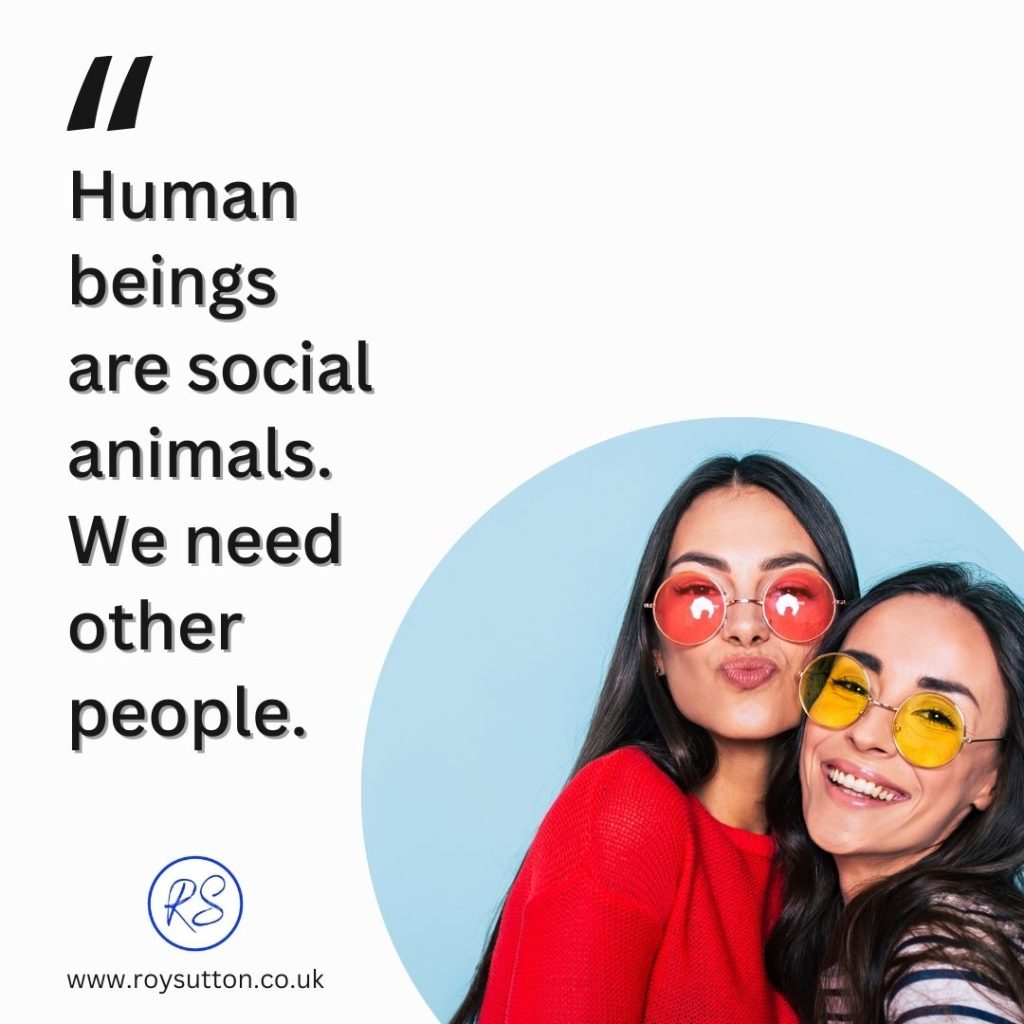
Making friends as an adult can feel challenging, but it’s not impossible. Many struggle to form new connections after leaving school or starting a new job. The good news is that there are proven ways to meet people and build lasting friendships.
To make friends as an adult, try joining local groups, pursuing hobbies, and being open to new experiences.
These strategies can help you meet like-minded individuals and form genuine connections. It’s important to put yourself out there and be willing to initiate conversations.
Remember that friendships take time to develop. Be patient and focus on nurturing acquaintances into deeper relationships. With effort and the right approach, you can build a fulfilling social circle at any age.
Key Takeaways
- Join groups and pursue hobbies to meet like-minded people
- Take initiative in starting conversations and making plans
- Be patient and nurture relationships over time
Understanding the Challenges of Making Friends in Adulthood
Making friends as an adult can be tough. Many people find it harder than when they were younger.
Time is a big issue. Adults are often busy with work, family, and other commitments. This leaves less time for socializing and meeting new people.
Fear of rejection also plays a role. Adults may worry about being turned down or not fitting in with new groups.
Fewer natural meeting places exist for adults. School and college provide easy ways to meet peers, but these opportunities decrease with age.
Creating meaningful relationships as an adult takes effort. It’s not always easy to find people with shared interests or values.
Moving to a new city or changing jobs can make it even harder. Established social circles may already exist, making it tricky to break in.
Technology can both help and hinder. Social media connects people but may also reduce face-to-face interactions.
Some adults feel too tired to socialize. After a long day, spending time with friends can feel like a chore.
Different life stages can create barriers. People may have different priorities or lifestyles that don’t align well.
Despite these challenges, making friends as an adult is possible. It just requires a more conscious effort than in earlier years.
The Value of Friendship in Adult Life
Friends play a crucial role in adult life. They provide support, companionship, and a sense of belonging. Friendships can significantly enhance well-being according to recent research.
Adults with strong friendships often experience:
- Reduced stress levels
- Improved mental health
- Increased happiness
- Better physical health
Friends offer a listening ear during tough times. They celebrate successes and provide comfort during failures. This emotional support is invaluable for navigating life’s challenges.
Friendships also expand one’s social network. This can lead to new opportunities in both personal and professional spheres. Shared interests and hobbies often form the foundation of adult friendships.
As people age, friends become even more important. They can help prevent loneliness and isolation, which are common issues for older adults. Regular social interaction keeps the mind sharp and boosts the overall quality of life.
Maintaining friendships requires effort, but the rewards are worth it. Investing time in relationships leads to a richer, more fulfilling adult life. Friends provide a support system that complements family relationships and romantic partnerships.
Setting the Right Mindset for Friendship
Making friends as an adult starts with having the right mindset. A positive attitude is key to meeting new people and forming connections.
Adults should approach friendships with an open mind. They need to be willing to step out of their comfort zone and try new experiences.
Being proactive is crucial. Waiting for friendships to happen on their own rarely works. Adults must actively seek out opportunities to meet people and make connections.
Self-confidence plays a big role in making friends. Believing in oneself makes it easier to approach others and start conversations.
It’s important to have realistic expectations. Not every interaction will lead to a lasting friendship, and that’s okay. Adults should focus on enjoying the process of meeting new people.
Patience is vital when forming adult friendships. It takes time to build meaningful connections. Adults shouldn’t get discouraged if friendships don’t develop instantly.
Being genuine and authentic helps attract like-minded individuals. People are more likely to connect with those who are true to themselves.
Lastly, adults should remember that everyone is looking for a connection. Many people feel nervous about making new friends. Keeping this in mind can help reduce anxiety and increase empathy when meeting others.
Strategies for Meeting New People
Meeting new people as an adult can be challenging, but there are effective ways to expand your social circle. These strategies focus on common interests, technology, and in-person events to help you connect with potential friends.
Leveraging Your Interests and Hobbies
Joining clubs or organizations related to your passions is a great way to meet like-minded individuals. Look for local groups that align with your interests, such as book clubs, sports teams, or art classes.
Consider volunteering for causes you care about. This allows you to meet people who share your values while making a positive impact on your community.
Take up a new hobby or skill. Cooking classes, language exchange groups, or dance lessons can introduce you to diverse groups of people with similar goals.
Utilizing Social Media and Apps
Social media platforms can be powerful tools for connecting with new friends. Join Facebook groups or follow hashtags on Instagram related to your interests or local area.
Friendship apps like Bumble BFF or Meetup can help you find people nearby who are also looking to make new connections.
Use LinkedIn to network professionally and potentially form friendships with colleagues or industry peers.
Attending Events and Meetups
Local events and meetups offer great opportunities to meet new people face-to-face. Check community boards or websites for upcoming gatherings in your area.
Attend workshops, seminars, or conferences related to your field or interests. These events often include networking sessions where you can connect with others.
Don’t shy away from social gatherings. Accept invitations to parties, barbecues, or other social events where you might meet friends of friends.
Consider organizing your own meetup or event based on a hobby or interest. This puts you in control and attracts people with similar passions.
Initiating Conversations and Making Connections
Starting conversations with new people can feel daunting. Yet, it’s a crucial step in making friends as an adult. The key is to be approachable and show genuine interest in others.
One effective strategy is to ask about their lives. This shows you care about getting to know them. Simple questions about hobbies, work, or recent experiences can open up dialogue.
Body language plays a big role too. Maintain eye contact, smile, and keep an open posture. These non-verbal cues signal that you’re friendly and receptive to conversation.
Common interests often provide the best foundation for new friendships. Joining clubs or groups related to your hobbies can make it easier to connect with like-minded individuals.
Remember to be patient. Building meaningful connections takes time. Don’t put too much pressure on yourself to form instant friendships. Instead, focus on enjoying the process of meeting new people.
Here are some conversation starters:
- “What do you like to do for fun?“
- “Have you read any good books lately?“
- “What’s the best part of your job?“
These questions can help break the ice and lead to more in-depth discussions.
Deepening Friendships Over Time
Strong friendships take effort and commitment. Nurturing connections requires ongoing communication and building mutual trust.
Consistent Communication
Staying in touch regularly helps friendships grow. Set reminders to check in with friends weekly or monthly. A quick text, call, or video chat can maintain bonds.
Share updates about your life and ask about theirs. Remember important events like birthdays and job interviews. Follow up on things friends mentioned before.
Plan regular get-togethers like monthly game nights or coffee dates. These routines create shared experiences to bond over. Even brief interactions add up over time.
Building Trust and Support
Open up gradually to deepen connections. Share personal stories and feelings to create intimacy. Listen without judgment when friends confide in you.
Offer help during tough times. Bring a meal when a friend is sick or provide childcare during a work crisis. Small gestures show you care.
Keep friends’ secrets and avoid gossip. Follow through on promises to prove reliability. Apologize sincerely for mistakes.
Celebrate friends’ successes. Send congratulations for promotions or other good news. Your genuine happiness for them strengthens the relationship.
Balancing Friendships with Other Life Commitments
Making friends as an adult can be tricky. People have busy lives with work, family, and other responsibilities. But friendships are important too.
One way to balance friendships is to schedule regular catch-ups. This could be a weekly coffee date or a monthly dinner. It helps keep the connection strong.
Another tip is to combine activities. For example, someone could:
- Work out with a friend
- Run errands together
- Have a study group for work or school
Technology can help too. Video calls and messaging apps make it easy to stay in touch even when busy.
It’s okay to have different levels of friendship. Some friends might be closer than others. That’s normal and helps manage time and energy.
Being honest about time limits is important. If someone can’t meet up, they should say so. Good friends will understand.
Group activities can be a great way to see multiple friends at once. This could be a book club or game night.
Remember, quality matters more than quantity. A few good friends are better than many casual ones.
Overcoming Setbacks and Rejections
Making friends as an adult can be tough. Setbacks and rejections are normal parts of the process. It’s important to stay positive and keep trying.
Don’t take rejection personally. Remember, everyone has their own lives and commitments. If someone doesn’t respond to your invitation, it doesn’t mean they dislike you.
Try these tips to bounce back from setbacks:
- Stay positive and keep an open mind
- Focus on self-improvement and personal interests
- Practice self-care to boost confidence
Assume people like you. Many adults underestimate how much others enjoy their company.
Keep putting yourself out there. Join clubs, attend events, or volunteer. These activities provide chances to meet like-minded people.
Be patient. Building friendships takes time. Don’t get discouraged if connections don’t form immediately.
Learn from each interaction. Each experience helps improve social skills. Even if a friendship doesn’t work out, it’s a valuable learning opportunity.
Remember, rejection is not a reflection of your worth. It’s simply part of the friend-making process. Stay confident and keep trying.
Maintaining Long-Term Friendships
Keeping friendships strong over time takes effort and intention. Regular communication and shared experiences help friends stay connected through life’s ups and downs.
Regular Check-Ins and Gatherings
Friends can stay in touch with quick texts or calls. A simple “How are you?” shows care. Scheduling regular meetups creates anticipation and shared memories.
Meeting for coffee or a walk provides time to chat. Friends might plan monthly dinners or annual trips. These routines build a sense of continuity.
Virtual hangouts work well for long-distance friends. Video calls or online games offer ways to interact. Even busy adults can find time for brief check-ins.
Quality matters more than quantity. Deep conversations strengthen bonds. Friends should listen and offer support when needed.
Celebrating Major Life Events Together
Friends mark important milestones together. Birthdays, weddings, and job promotions are chances to show up for each other.
Attending these events in person means a lot. If distance is an issue, sending a thoughtful gift or card works too. The key is acknowledging the moment.
Friends can also create new traditions around life changes. Throwing a housewarming party or baby shower brings people together.
Sharing both joys and challenges keeps friendships real. Being there during tough times like breakups or losses deepens trust.
Remembering details about friends’ lives shows genuine interest. Asking about specific family members or projects makes people feel valued.
Frequently Asked Questions
Making friends as an adult can be challenging, but there are many strategies to help. These tips can work for different personalities and situations.
What strategies can I use to make friends in a new city as an adult?
Adults can join local clubs or groups based on their interests. They might try volunteering or attending community events. Pursuing a hobby in a group setting can also lead to new connections.
Sports leagues or fitness classes are great for meeting people with similar interests. Taking classes or workshops can help adults learn new skills while making friends.
What are some effective ways for introverted adults to form new friendships?
Introverted adults can start small by joining online communities related to their interests. They might attend low-key events or meetups with smaller groups.
One-on-one activities like coffee dates or walks can be less overwhelming. Joining a book club or craft group can provide a structured setting for socializing.
What are the common challenges faced by adults when trying to make new friends and how can they be overcome?
Time constraints are a major challenge. Adults can overcome this by scheduling regular social activities. Fear of rejection is common but can be addressed by remembering that others are also looking for friends.
Lack of opportunities can be solved by actively seeking out social situations. Adults can join clubs, take classes, or use apps designed for making friends.
How long does it typically take to form a meaningful friendship after meeting a new person as an adult?
Forming a close friendship can take several months to a year. Regular contact and shared experiences help build stronger bonds. Adults should be patient and allow relationships to develop naturally.
Consistency is key in developing friendships. Meeting regularly, even if just for short periods, can help strengthen connections over time.
Can you suggest any popular apps or platforms that are helpful for adults looking to expand their social circle?
Meetup is a popular app for finding local groups and events. Bumble BFF is designed specifically for making platonic friendships. Facebook Groups can connect people with similar interests in their area.
Hobby-specific apps or platforms can also be useful for meeting like-minded individuals. Sports or fitness apps often have social components for connecting with others.
What advice is there for young adults seeking to build new friendships, especially after moving to a different area?
Young adults should be open to new experiences and say yes to invitations. They can reach out to coworkers or classmates for social activities outside of work or school.
Joining a recreational sports league or fitness class can be a great way to meet people. Volunteering for local organizations can also lead to meaningful connections with others who share similar values.
Friendship Poem: The significance of having a friend

Please share this post with your friends:
If this article is useful to you, please share it on social media with your friends. When you share, everyone wins.
I appreciate your support. Thank you.

Other articles you might also find interesting:
- 11 tips for improving quality of life now
- What is life’s most precious resource?
- Why you should make a difference in life
- Why enjoying yourself can never be a waste of time
- Why passion is the key to success
- The importance of friends to our lives
- How to deal with criticism in the workplace
- The secret to happiness
Copyright © Mann Island Media Limited 2024. All rights reserved.


